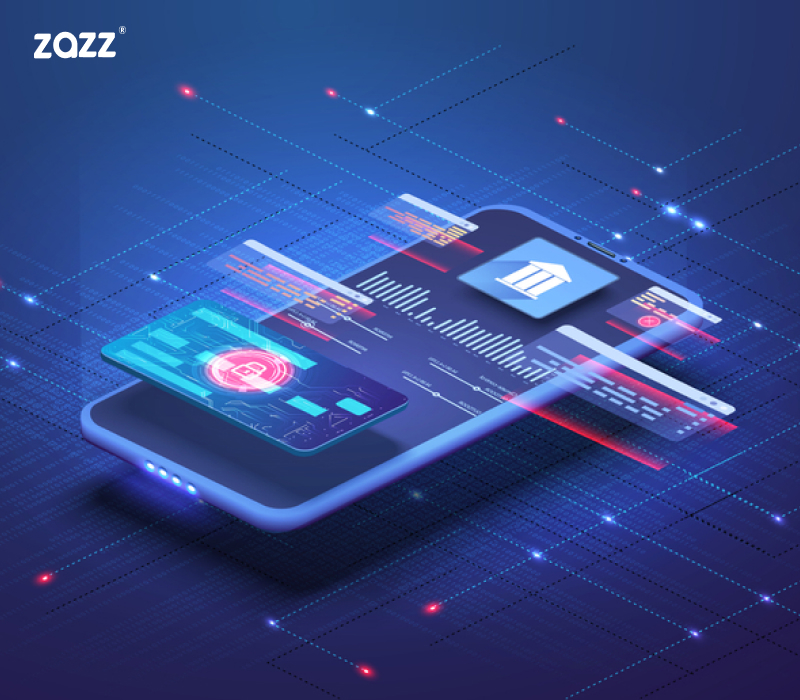As the fastest-growing industry, mobile app development certainly has a lot to deliver in terms of brand value and expansion. Now that the sector has successfully raked in a vast revenue of $935 billion in 2022, app and software development services will catch a lot of attention from enterprises and businesses of small and medium scale.
At present, the App Store and the Google Play Store collectively have 4 million apps that are used worldwide. But some of these applications are more user-friendly and popular than others. So, how does a digital product available on the same platform perform so distinctively?
It is the development technology stack that decides the ultimate fate of a mobile app. But how to choose a technology stack for apps that align with the project demands and available budget? If you are planning on connecting with an agency or looking to rebuild a digital product, this question must be bugging you!
Throughout this post, you will get a thorough answer to this prevailing question that will eventually help you save costs on mobile app development services. Before we start, let’s understand what a technology stack is and why you should know about it!
What is App Development Technology Stack? (And Why You Should Care?)

The complete structure of a mobile app or a digital product encompasses the front end, the back end, the development platform, and additional integration. It also includes the selection of frameworks and programming languages that enable a successful functional layout for the product.
In this structure, the front end stands for the interface that users can see. It needs to be visually compelling and convenient for the end user. On the other hand, the back end of an app should be efficiently implemented to receive inputs and provide an output asked by the user.
The development platform entails a framework consisting of libraries, tools, and widgets required for the integration. The additional components of this structure cover security and functionality tools that assure the performance and credibility of an application.
The future growth of a mobile app prominently depends on the technology stack. This is why you should be very cautious while making this section. In fact, leading app design & development companies across the globe now help businesses understand the impact of each framework on their business app.
How to Pick the Best App Development Technology Stack for Your Business?
1. Basic Mobile App Requirements

To begin with, you must list the requirements for app development services you have in mind. Do you want a native Android and iOS app or a hybrid mobile app? What industry do you wish to target and how large your consumer base will be? When would you like to launch your application in the market?
These are some imperative questions that you must answer to choose the most suitable technology stack for a mobile app. Because the platform you pick also affects the project development timeline.
2. Goals and Target Audience

The success of a digital product depends widely on definitive data which is why a leading app development company will always ask about your goals and target audience. It lets them come up with a technology stack that fits the requirements perfectly.
Your choice of a nationwide or a global audience base becomes an essential factor for the righteous selection of tech stack.
3. Cost of Mobile App Development

What’s your budget for mobile app development and how soon do you want it to be up and running? Your budget for the application and project turn-around time will also be an element of consideration.
When it comes to the overall app development budget of an app, it mainly covers developers’ hourly rate, licensing fees, and costs associated with product maintenance. In addition, choosing an open-source platform will not always save you the cost because the use of several third-party tools and paid widgets is one of the possibilities.
4. Options for Scalability

Suppose, you have chosen an open-source framework to minimalize the development cost and the launch timeframe. Now you want to scale your running app, but the free platform isn’t flexible enough to streamline this scalability. This is a potential challenge you may come across while choosing a technology stack for mobile app development.
Choosing an efficient stack is crucial so you can scale your mobile app with futuristic app demands and increase the bandwidth of your market outreach.
5. Mobile App Security

Security is that particular string of an app development project that growing enterprises would never want to compromise with. It is vital to protect an app from cyber-attacks that also affect the application users and tarnish the brand’s reputation drastically.
When you are choosing a technology stack for mobile applications, you should also infer the robustness of a framework in terms of cyber protection and risk management.
6. Alliance with the Latest Technologies

Does the framework you have chosen support the interests of your next-gen audiences? It is an imperative question you must ask yourself when learning about the technology stack of your project. If an app development framework can effectively incorporate the latest tech trends such as AR, VR, and IoT, then you are probably on the right track.
An Overview of Mobile App Development Technology Stack
Android Apps
Swift – Resistant to functional errors, top-notch performance, progressive language, code readability, and technical support
Objective C – High compatibility with C++, accessibility to private APIs, tested languages, and comprehensive code syntax
iOS Applications
Kotlin – Thread prevention due to the lazy initialization feature, reduced lines of code, better syntax, fault resistance, extension function, and enhanced security
Java – Self-operative storage management, multi-thread capability, portability, scalability, reduced deployment time, and open-source libraries.
Cross-Platform Apps
Flutter – Same UI customization for all platforms, fast development due to hot reload, a range of customizability widgets, public accessibility, and access to native features
React Native – Native Android & iOS compatibility, common JavaScript codebase, custom debugging tools, and accessibility to real-time project testing
Xamarin – Highly compatible with C# programming language, easy native UI compilation, functionality monitoring in the cloud, and cross-platform UI toolkit
Whether you are planning to build an enterprise application for an internal process or upgrade an existing brand portal, you must know where you’re investing your bucks. Or you can consult an on-demand app development company that offers to do this part of the services for you. In simple words, you just need to partner with an agency that cares to guide you through technology stack selection for the app.
The technology stack of a mobile app prepares the course of success for an application while it’s in the development phase. On some levels, the UI design and functionality are thoroughly affected by the platform and programming language you finalize. If you want to connect with an app development agency in the USA for guidance and support, Zazz is a team you can always count on.
As a success-driven IT enterprise, we take pride in delivering customized solutions while keeping you informed of the suitable technologies and trends for your market. Our app development services are beyond planning, development, and delivery. From native iOS and Android app development company to enterprise software integration & cross-platform apps, we incorporate research and insights in every project we come across.
To learn more about our application development technology stack and custom mobile app development services, contact us today!
Source link






Leave a Reply